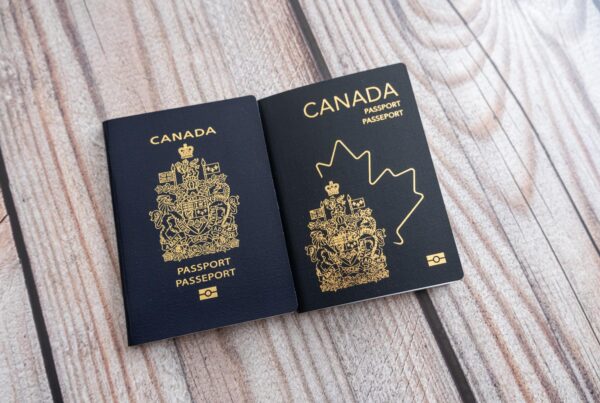Immigrating to a new country can be an exciting opportunity for many people. Canada is known for being a welcoming country that embraces diversity, making it a popular destination for immigrants around the world. However, the immigration process can be complex and confusing, especially for those who are unfamiliar with the regulations and procedures involved. In this blog post, we will explore Canadian immigration regulations, the types of Canadian visas and work permits, eligibility criteria, common challenges faced by immigrants, how a Vancouver immigration lawyer can help maximize your mobility, and tips for maximizing your mobility under Canadian immigration regulations.
Introduction to Canadian Immigration Regulations
Canadian immigration regulations are governed by the Immigration and Refugee Protection Act (IRPA) and its accompanying regulations. These regulations are designed to ensure that Canada’s immigration system is fair, consistent, and transparent. The IRPA outlines the criteria that individuals must meet to be eligible to enter Canada as permanent residents, temporary residents, or refugees.
Types of Canadian Visas and Work Permits
There are several types of Canadian visas and work permits that individuals can apply for, depending on their circumstances. Some of the most common types of visas and permits include:
- Visitor Visa: A visitor visa allows an individual to enter Canada for a temporary period, usually for tourism or to visit friends and family.
- Study Permit: A study permit allows an individual to study in Canada at a designated learning institution for a specified period.
- Work Permit: A work permit allows an individual to work in Canada for a specified period, usually for a specific employer or in a specific field.
- Permanent Resident Visa: A permanent resident visa allows an individual to live and work in Canada permanently, as long as they meet the requirements outlined in the IRPA.
Eligibility Criteria for Canadian Immigration
To be eligible to immigrate to Canada, individuals must meet certain eligibility criteria. These criteria vary depending on the type of visa or permit they are applying for. Some of the general eligibility requirements for Canadian immigration include:
- Language Proficiency: Applicants must be proficient in English or French, which are the official languages of Canada.
- Education: Applicants must have a minimum level of education, usually a high school diploma or equivalent.
- Work Experience: Applicants must have relevant work experience in their field of expertise.
- Medical Examination: Applicants must undergo a medical examination to ensure that they are not carrying any communicable diseases.
Understanding Canadian Immigration Processes and Procedures
The Canadian immigration process involves several steps, and it can be a lengthy and complex process. Some of the common steps involved in the process include:
- Assessment of Eligibility: Applicants must first determine if they meet the eligibility criteria for the type of visa or permit they are applying for.
- Submission of Application: Applicants must submit their application, along with supporting documents, to the appropriate Canadian government agency.
- Review of Application: The Canadian government agency will review the application and supporting documents to ensure that they are complete and accurate.
- Background Check: Applicants must undergo a background check to ensure that they do not have a criminal record or pose a security risk.
- Medical Examination: Applicants must undergo a medical examination to ensure that they are in good health.
- Interview: Applicants may be required to attend an interview to further assess their eligibility.
- Issuance of Visa or Permit: If the application is approved, the applicant will be issued a visa or permit to enter Canada.
Common Challenges Faced by Immigrants in Canada
Immigrating to a new country can be challenging, and Canada is no exception. Some of the common challenges faced by immigrants in Canada include:
- Language Barriers: Immigrants who do not speak English or French may face challenges in communicating with others
- Employment: Immigrants may face challenges in finding employment that matches their qualifications and experience.
- Cultural Differences: Immigrants may experience culture shock and may find it challenging to adapt to Canadian culture.
- Housing: Immigrants may face challenges in finding affordable housing, especially in large urban centers.
How a Vancouver Immigration Lawyer Can Help Maximize Your Mobility
Navigating the Canadian immigration system can be overwhelming and stressful. Working with a Vancouver immigration lawyer can help maximize your mobility and ensure that your application is complete, accurate, and submitted on time. An immigration lawyer can provide valuable guidance and assistance throughout the immigration process, including:
- Assessing Eligibility: An immigration lawyer can assess your eligibility for Canadian immigration and recommend the best type of visa or permit for your situation.
- Application Preparation: An immigration lawyer can help prepare your application and ensure that all supporting documents are complete and accurate.
- Communication with Government Agencies: An immigration lawyer can communicate with government agencies on your behalf, ensuring that your application is processed efficiently and effectively.
- Representation at Hearings and Appeals: If your application is denied, an immigration lawyer can represent you at hearings and appeals, advocating for your rights and interests.
Tips for Maximizing Your Mobility under Canadian Immigration Regulations
If you are planning to immigrate to Canada, there are several tips you can follow to maximize your mobility under Canadian immigration regulations, including:
- Research: Research the different types of visas and permits available to determine which one is best suited to your situation.
- Prepare Your Application: Ensure that your application is complete, accurate, and submitted on time.
- Be Patient: The Canadian immigration process can be lengthy, so be patient and prepared to wait for your application to be processed.
- Be Honest: Be honest and upfront about your background and qualifications to avoid any complications or delays in the application process.
- Seek Professional Assistance: Consider working with a Vancouver immigration lawyer to maximize your chances of success and ensure that your application is processed efficiently and effectively.
Maximize Your Mobility under Canadian Immigration Regulations with Joshua Slayen
Navigating Canadian immigration regulations can be a daunting task, but with the right guidance and support, it can be a smooth and successful process. As a trusted Vancouver immigration lawyer, Joshua Slayen has extensive experience helping clients understand and navigate Canadian immigration regulations. From assessing eligibility and preparing applications to communicating with government agencies and representing clients at hearings and appeals, Joshua Slayen is committed to maximizing his clients’ mobility under Canadian immigration regulations. If you are seeking a Canadian visa or work permit, consider working with Joshua Slayen to ensure that your application is complete, accurate, and submitted on time. With Joshua Slayen’s expertise and guidance, you can achieve your Canadian immigration goals and start building a new life in one of the most welcoming countries in the world.











